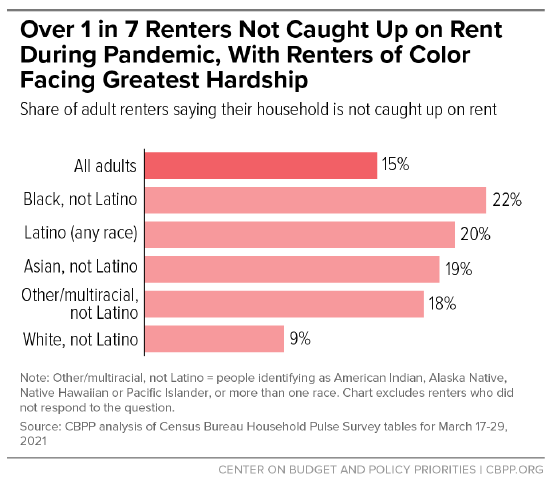Housing Justice is Racial Justice
April is National Fair Housing Month. Housing advocates across the country are celebrating the 53rd anniversary of the passage of the Fair Housing Act. Signed into law by President Lyndon B. Johnson on April 11, 1968, this landmark legislation prohibits discrimination in the sale, rental and financing of housing based on race, color, religion, national origin, sex, disability, and family status. Yet the federal law’s promise to promote a more equitable and integrated society remains largely unfulfilled. Shortly after the law passed, the federal government adopted policies meant to keep Black people and others out of white neighborhoods, which in turn perpetuated the segregated and unequal society we now see. Many were (and continue to be) left behind, unable to access and benefit from the opportunities only made available in white neighborhoods.
The lack of fair and affordable housing we now see in urban, suburban, and rural communities contribute to evictions and homelessness, both of which have had a disproportionate impact on communities of color. The COVID-19 crisis made things worse by putting these vulnerable communities at an even greater risk of losing their homes at a time when everyone should be sheltering in place to prevent the spread of the virus. Households of color are more likely than white households to be renters; and renters of color faced the greatest financial hardship during the pandemic, with over one in seven behind in their rent payments.

Black and Latinx renters in general, and women in particular, are disproportionately affected by eviction threats, actual evictions, and exposure to the negative consequences of eviction like bad credit, homelessness, job loss, and depression. Black individuals made up 19.9 percent of all adult renters but 32.7 percent of all eviction filing defendants. Black communities are more likely to experience homelessness and access shelters – they make up 13 percent of the general population, but more than 40 percent of the homeless population. And this is even more striking for people in families experiencing homelessness who are disproportionately Black (53% were Black or African American). These racial disparities extend to other communities as well – Native Hawaiians and Pacific Islanders currently have the highest rate of homelessness.
Even though Congress has already dedicated a significant sum of money for rental assistance through the CARES Act and the American Rescue Plan, more work is needed to address evictions, homelessness, and the affordable housing crisis. To be clear, these problems existed long before the global pandemic hit. COVID-19 only magnified and exacerbated them. One reason they continue to persist is because our government has neither taken a major role nor made the necessary investments required to tackle these issues.
We cannot rely completely on the private market to fix these social woes, yet less than 5 percent of rental housing in the U.S. belongs to local public authorities, and all subsidized housing is less than 10 percent of the rental market. This is why we’re asking Congress to increase access to rental assistance to all eligible households and to make significant investments in preserving and creating more public and affordable housing. These actions coupled with adequate funding, if taken by Congress, will benefit all communities in the long run and start advancing racial equity by helping those who are most vulnerable.
The lack of access to safe, decent, and affordable housing today reflects and compounds the racial inequities that have plagued this country for centuries. The federal government played a major role in creating housing segregation and inequity and allowing them to persist. It now carries the burden and responsibility of fixing it. Failure to do so would only result in greater inequities, with fair and affordable housing out of reach for many. Change will not happen overnight, but the current Congress must act now to fulfill the spirit of the Fair Housing Act.